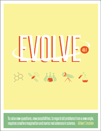
JOURNAL OF CREATIVE BEHAVIOR
Scope & Guideline
Fostering Interdisciplinary Insights into Creativity
Introduction
Aims and Scopes
- Interdisciplinary Research on Creativity:
The journal publishes studies that integrate insights from psychology, education, sociology, and other fields to explore the multifaceted nature of creativity. - Individual Differences in Creativity:
A significant focus is on how personal attributes such as personality traits, emotional states, and cognitive styles influence creative thinking and performance. - Contextual Influences on Creativity:
Research examining the impact of social, cultural, and environmental factors on creativity is prevalent, emphasizing how context shapes creative processes. - Methodological Diversity:
The journal embraces a variety of research methodologies, including experimental studies, qualitative research, and meta-analyses, to provide comprehensive insights into creativity. - Applied Creativity:
There is a strong emphasis on applied research that investigates practical implications of creativity in educational settings, workplaces, and therapeutic contexts.
Trending and Emerging
- Creativity and Technology:
There is a notable increase in studies exploring the intersection of creativity and technology, including the role of artificial intelligence in creative processes and outputs. - Mental Health and Creativity:
Research examining the relationship between mental health, emotional states, and creativity is gaining traction, highlighting the significance of psychological well-being in fostering creative expression. - Social and Cultural Dimensions of Creativity:
Emerging themes focus on how social dynamics, cultural contexts, and community engagement influence creative practices, especially in marginalized voices. - Creativity in Education:
An increasing number of studies are aimed at enhancing creativity in educational settings, particularly through innovative pedagogical approaches and curricula that promote creative thinking. - Interdisciplinary Collaborations:
There is a growing trend towards interdisciplinary research that combines insights from various fields to better understand and enhance creativity across different contexts.
Declining or Waning
- Traditional Views of Creativity:
There appears to be a waning interest in conventional definitions and measurements of creativity, as researchers increasingly explore more nuanced and contextualized understandings. - Focus on Artistic Creativity:
Research specifically centered around artistic creativity and its evaluation is becoming less frequent, possibly due to broader explorations of creativity across diverse domains. - Static Models of Creativity:
The emphasis on static or linear models of creativity is diminishing, with a growing preference for dynamic and interactive models that account for variability in creative processes. - Gender Differences in Creativity:
Studies focusing solely on gender differences in creative abilities have decreased, as more comprehensive approaches consider intersectionality and contextual factors. - Creativity in Isolated Contexts:
Research that examines creativity in isolated or overly specific contexts is declining, with a shift towards understanding creativity as a complex interplay of multiple influences.
Similar Journals
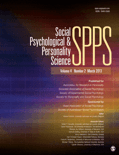
Social Psychological and Personality Science
Advancing the Frontiers of Psychological InsightSocial Psychological and Personality Science is a highly regarded journal published by SAGE Publications Inc that spans the vibrant fields of social psychology and personality research. With an impressive impact factor reflective of its academic rigor, this journal consistently ranks in the Q1 category for both Clinical Psychology and Social Psychology, exemplifying its dedication to advancing psychological science. The journal has established itself as a platform for pioneering research since its inception in 2010, with a strong convergence of scholarly work leading up to 2024. This publication is essential for researchers, professionals, and students seeking cutting-edge insights and developments in the psychological sciences, as it emphasizes the interconnections between social and personality factors. Although open access options are currently limited, the availability of its authoritative articles ensures that critical research findings remain accessible to the academic community.
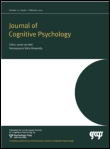
Journal of Cognitive Psychology
Innovating research in cognitive psychology.Journal of Cognitive Psychology is a premier peer-reviewed journal published by Routledge Journals, Taylor & Francis Ltd, located in the United Kingdom. With an ISSN of 2044-5911 and E-ISSN 2044-592X, this journal is dedicated to advancing the field of cognitive psychology by disseminating high-quality research findings and theoretical insights. Spanning from 2011 to 2024, the journal occupies a significant position in its field, classified in the Q3 quartile for 2023 in Experimental and Cognitive Psychology, and ranked #117 out of 165 in the Scopus database, indicating its relevance and contribution to the discipline. The impact factor reflects its evolving nature and the increasing interest in cognitive processes, making it a vital resource for researchers, professionals, and students alike. As the landscape of cognitive psychology continues to grow, the journal remains committed to exploring cutting-edge topics and methodologies, while engaging with dynamic challenges associated with cognition and behavior. Readers are encouraged to utilize the Open Access options available, ensuring seamless accessibility to this crucial body of work.
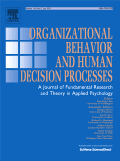
ORGANIZATIONAL BEHAVIOR AND HUMAN DECISION PROCESSES
Advancing insights into human behavior and decision-making.ORGANIZATIONAL BEHAVIOR AND HUMAN DECISION PROCESSES is a premier academic journal published by Academic Press Inc Elsevier Science, focused on the interplay between individual behaviors and organizational dynamics. Established in 1985, this journal stands out with its high impact, reflected in its Q1 ranking within both the Applied Psychology and Organizational Behavior and Human Resource Management categories for 2023. Boasting a strong reputation, it ranks #29 out of 249 in Applied Psychology and #27 out of 230 in Organizational Behavior, positioning it in the top 12% of its field. The journal aims to advance the understanding of human decision-making processes in organizational contexts, presenting cutting-edge research that contributes to both theoretical frameworks and practical applications. Though currently not an open-access publication, its rigorous peer-review process ensures that only the most relevant and impactful studies are disseminated to aid researchers, professionals, and students alike in navigating the complexities of human behavior in organizational settings. In a rapidly evolving organizational landscape, this journal remains a vital resource for those aiming to enhance their knowledge and application of behavioral science.
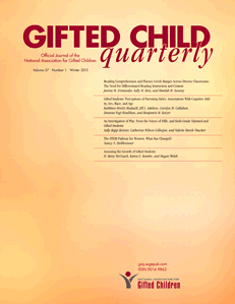
GIFTED CHILD QUARTERLY
Unlocking the Potential of Gifted MindsGIFTED CHILD QUARTERLY, published by SAGE Publications Inc, stands out as a premier journal dedicated to the exploration of giftedness in children and adolescents. With an impressive ISSN of 0016-9862 and an E-ISSN of 1934-9041, this journal serves a vital role in both Developmental and Educational Psychology and the broader Education field, holding significant impact factors and ranking in the top quartiles—Q2 for Developmental and Educational Psychology and Q1 for Education as of 2023. The journal, with a rich history dating back to 1957, offers researchers, professionals, and students valuable insights and original research findings on the educational needs and psychosocial aspects of gifted children, promoting a deeper understanding of their unique developmental trajectories. Although it is not an open-access journal, GIFTED CHILD QUARTERLY remains a critical resource for advancing knowledge and fostering best practices in the identification, support, and education of gifted learners.

Nature Human Behaviour
Illuminating the intersection of behavior and society.Nature Human Behaviour, published by Nature Portfolio in the United Kingdom, stands at the forefront of interdisciplinary research, connecting the fields of Behavioral Neuroscience, Experimental and Cognitive Psychology, and Social Psychology. With its commitment to publishing groundbreaking studies, this prestigious journal is categorized within the Q1 quartiles for 2023, indicating its elite status and significant influence in the academic community. Recognized globally with a remarkable Scopus ranking of #1 in multiple psychology and neuroscience categories, it showcases the highest quality research, thus appealing to students, professionals, and researchers alike. Despite being a subscription-based journal, its impactful scientific discourse continues to shape understanding of human behavior in social contexts. With the ambition to elucidate the complexities of human interaction and cognition, Nature Human Behaviour serves as an essential resource for anyone dedicated to advancing the realm of human behavioral sciences.

Observar
Unveiling the Potential of Plastic Arts in LearningObservar is a prominent academic journal dedicated to the field of plastic arts education and creative expression, published by the esteemed University of País Vasco, specifically under the Department of Didactics of Plastic Expression. Since its inception in 2007, this Open Access journal has provided a vital platform for sharing innovative research, pedagogical practices, and interdisciplinary approaches that enhance the understanding of artistic education. With an ISSN of 1988-5105, Observar actively contributes to the dialogue surrounding the methodologies and implications of plastic arts in educational settings, making it an invaluable resource for researchers, educators, and students alike. Located in Bilbao, Spain, it aims to foster a global community of practice that encourages critical engagement and collaboration in the pursuit of excellence in arts education.

Current Issues in Personality Psychology
Advancing Knowledge in Personality PsychologyCurrent Issues in Personality Psychology, published by TERMEDIA PUBLISHING HOUSE LTD, is an esteemed Open Access journal dedicated to advancing the field of social psychology with a specific focus on personality studies. Since its inception in 2013, this journal has provided a platform for innovative research, critical reviews, and theoretical discussions that address contemporary issues in personality psychology. With an ISSN of 2353-4192 and an E-ISSN of 2353-561X, it is recognized for its contribution to the academic community, currently holding a Q3 category status in the 2023 Social Psychology quartiles. The journal covers converged years from 2016 to 2024, ensuring that it remains at the forefront of emerging trends and scholarly debates. Operating from Poznan, Poland, Current Issues in Personality Psychology remains committed to fostering open dialogue among researchers, professionals, and students, providing vital insights into the complexities of personality and its implications for social behavior.
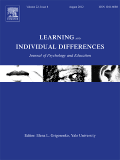
LEARNING AND INDIVIDUAL DIFFERENCES
Unraveling the complexities of learning differences.LEARNING AND INDIVIDUAL DIFFERENCES is a prestigious academic journal published by Elsevier, focusing on the intricate interplay between learning processes and individual variations. Since its establishment in 1989, this journal has devoted itself to advancing the understanding of cognitive and psychological factors affecting educational outcomes. With its remarkable Q1 rankings in Developmental and Educational Psychology, Education, and Social Psychology, it stands among the top-tier journals in these fields, reflecting its strong commitment to high-quality research. Additionally, it boasts impressive Scopus rankings, placing it within the 90th percentile for Social Sciences in Education and the 84th percentile for both Developmental and Educational Psychology and Social Psychology. The journal aims to provide a platform for empirical research, theoretical contributions, and practical applications that contribute to the field of learning sciences, making it essential reading for researchers, practitioners, and students alike. Although it is not Open Access, the wide accessibility through library subscriptions ensures that the critical insights it provides are available to a broad audience committed to enhancing educational practices and understanding individual differences.
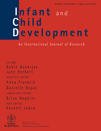
INFANT AND CHILD DEVELOPMENT
Bridging Theory and Application in Developmental PsychologyINFANT AND CHILD DEVELOPMENT is a prestigious academic journal published by Wiley, focusing on the critical fields of developmental and educational psychology. With an ISSN of 1522-7227 and an E-ISSN of 1522-7219, this journal has established itself as a vital resource for researchers, practitioners, and students interested in the growth and cognitive development of infants and children. The journal has been an essential part of the academic community since its inception in 1996 and is projected to run until 2024. Currently categorized in Q2 for its field in the 2023 rankings, INFANT AND CHILD DEVELOPMENT ranks #191 out of 360 in developmental and educational psychology according to Scopus, placing it in the 47th percentile overall. The journal offers a mix of open access options, ensuring that groundbreaking research is freely available to a global audience. With its commitment to enhancing the understanding of early development, this journal plays a pivotal role in advancing the science and application of developmental psychology, making significant contributions to both policy and practice.
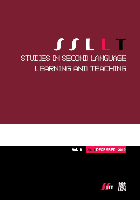
Studies in Second Language Learning and Teaching
Unveiling new strategies for successful language learning.Studies in Second Language Learning and Teaching is a premier open-access journal dedicated to advancing research and scholarship in the fields of education, linguistics, and language acquisition. Published by ADAM MICKIEWICZ UNIVERSITY, KALISZ, this journal has consistently achieved high acclaim, reflected in its impressive Q1 rankings in both Education and Linguistics and Language categories for 2023. With a robust focus on innovative methods, effective pedagogical strategies, and interdisciplinary approaches, Studies in Second Language Learning and Teaching aims to facilitate dialogue among researchers, educators, and practitioners, fostering a deeper understanding of language learning and teaching in diverse contexts. Since its transition to open access in 2011, the journal has expanded its reach, providing valuable resources and research findings to a global audience. With an exceptional Scopus ranking placing it in the top percentiles across multiple categories, this journal stands as a crucial platform for the dissemination of ground-breaking research in second language education.